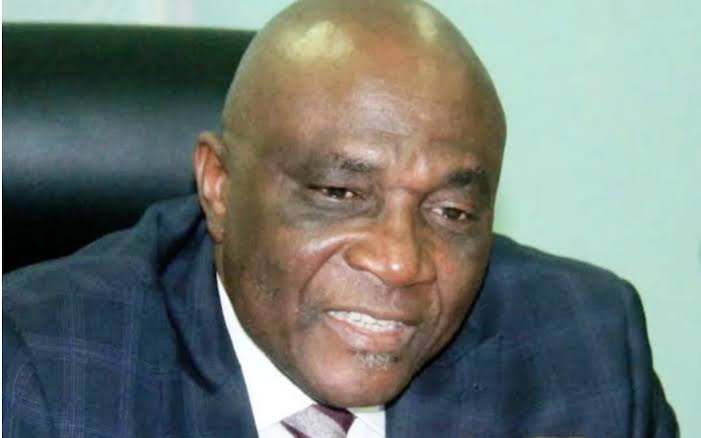News
‘Inconsistent with records,’ Presidency faults Adesina’s assessment of Nigeria’s economy

The Presidency has strongly rebuffed recent remarks made by the outgoing President of the African Development Bank (AfDB), Dr. Akinwumi Adesina, who claimed that Nigerians are economically worse off today than they were at the dawn of independence in 1960.
Adesina made the controversial statement while delivering the keynote address at the 20th anniversary dinner of Chapel Hill Denham in Lagos.
In his speech, he asserted that Nigeria’s current GDP per capita of $824 marked a stark decline from $1,847 in 1960, suggesting a deep regression in the country’s economic wellbeing.
However, the Presidency, through a statement issued on Sunday by Presidential Spokesperson Bayo Onanuga, challenged both the data and conclusions presented by the AfDB chief.
Describing Adesina’s figures as “inaccurate,” Onanuga argued that they are inconsistent with verifiable historical records.
“According to available data, Nigeria’s GDP in 1960 was $4.2 billion, and per capita income for a population of 44.9 million was approximately $93—not the $1,847 cited by Dr. Adesina,” Onanuga stated.
He further explained that significant economic growth did not occur until the oil boom of the 1970s, with GDP reaching $12.55 billion in 1970 and eventually rising to $164 billion by 1981. Even then, per capita income only briefly peaked at $2,187 in 1981 before declining again. It wasn’t until 2014, after a major GDP rebasing exercise, that Nigeria reached an all-time high per capita income of $3,200.
READ ALSO: Catholic Secretariat to verify AI-generated Trump papacy image before official response
Beyond disputing the numbers, the Presidency also took issue with the use of GDP per capita as a standalone measure of national progress. Onanuga noted that while GDP per capita is a useful economic indicator, it often fails to reflect broader aspects of development such as inequality, wealth distribution, and the scope of informal economic activity, factors particularly relevant in the Nigerian context.
“Judging a nation’s progress solely through the lens of GDP per capita can be misleading,” Onanuga said. “It does not capture the human realities, nor does it acknowledge advancements in infrastructure, healthcare, education, and technology.”
The Presidency pointed to tangible improvements in key sectors since independence, including widespread access to digital technology, a dramatic expansion in road networks, and exponential growth in schools and healthcare facilities. Highlighting the success of mobile telecommunications, Onanuga contrasted the country’s nearly universal access to mobile phones today with the fewer than 20,000 landlines available at independence in 1960.
“MTN, for example, succeeded in Nigeria despite earlier doubts based on GDP metrics. This underscores the limitations of relying on those figures alone,” he added.
While acknowledging some of the economic challenges raised by Dr. Adesina, such as policy inconsistencies, weak institutions, and overdependence on oil, the Presidency urged commentators and analysts to adopt a more nuanced and holistic approach to evaluating Nigeria’s progress.
Dr. Adesina, in his speech, had called for a fundamental transformation of Nigeria’s economic structure. He warned that without industrialization and deeper investments in key sectors, the country’s ambition to become globally competitive by 2050 would remain elusive.
Join the conversation
Support Ripples Nigeria, hold up solutions journalism
Balanced, fearless journalism driven by data comes at huge financial costs.
As a media platform, we hold leadership accountable and will not trade the right to press freedom and free speech for a piece of cake.
If you like what we do, and are ready to uphold solutions journalism, kindly donate to the Ripples Nigeria cause.
Your support would help to ensure that citizens and institutions continue to have free access to credible and reliable information for societal development.
















